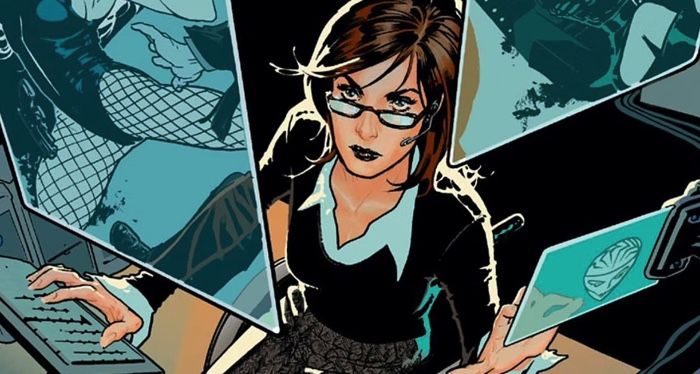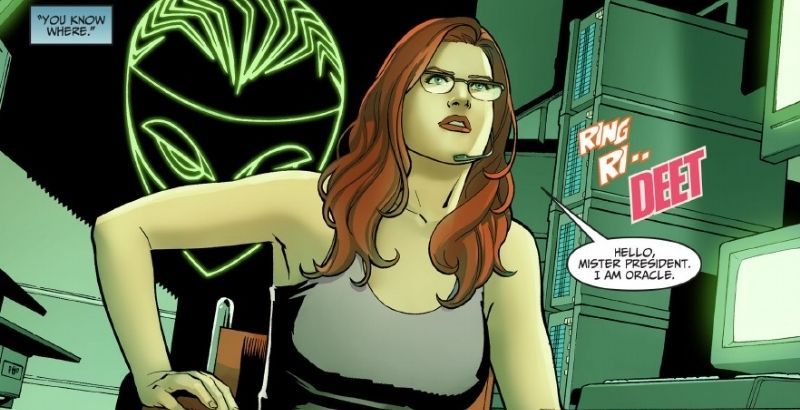
No More Computers as Magical Shortcuts
Tropes. Some you have to love. The mystery and romance genres run on tropes, in fact. Closed-door murders. Enemies-to-lovers. On and on the lists go for those genres. But some tropes I wish would jump off of a cliff into a deep, intense fire to never be seen again. One of those tropes is using computers as magic.

What do I mean by using computers as magic? I see this most often in thrillers, particularly involving vigilantes or police. There’s been a murder. Ack! We have to catch the killer! Do we canvas the streets to talk to people? Do we interrogate potential witnesses and look for obscure clues? Nah. We have computers. We’re going to spend a few pages on some tech-wizard looking through security camera footage. We’re going to use facial recognition, unreasonable zoom, and hack into cell phones. Now we’ve found our culprit, and we’re on the trail.
Admittedly, I see this most in television. With only 40-odd minutes to tell a story, computers are a way to move quickly from the discovery of a crime to chasing the villain. My wife and I turned on the TV to a random episode of The Equalizer, and there was a hacker helping Queen Latifah find a young man. They were bypassing firewalls protecting CCTV networks, cell phone towers, and so on. As much as I loved Felicity in Arrow, half of her character was just functioning as a computer wizard.
Books do this, too, of course. Most modern thrillers and detective stories are guilty to at least some degree. The Jack Ryan or Bourne series come to mind. Comic books, in particular, are egregious. While Arrow’s Felicity appeared in comics first, she was a very different character. The TV adaptation of her is much more like Oracle from the Batman family. She sits behind a computer, hacking into various systems and keeping the family members in communication while they’re out on the streets, punching their way through villains. The X-Men, Avengers, and Justice League all rely heavily on computers doing unrealistic things to move the story along. But again, they only have 22 pages to tell a story.

I get it in some ways. Computers have radically changed how those in law enforcement do their jobs. Cities like London really are canvassed with CCTV cameras. Facial recognition is getting better all the time. The issue I take is that these shortcuts feel less like plausible technology and more like magical storytelling shortcuts. Look at a period piece like Devil in a Blue Dress by Walter Mosely. Set in Los Angeles just after World War II, there are no computers to use. No CCTV. No cell phones. No Internet. Easy Rawlins has to head out into the city and talk to people.
You may be thinking that I sound like an old man screaming at the sky. Why is this older method better? Why not use every tool available? My answer is simple: books are about characters.
I don’t just mean the hero of a particular story or even the villain. I mean all of the people who inhabit a world. The intrigue of a good mystery is partly wrapped up in the entire cast of characters. Every time Easy Rawlins knocks on a door, he’s about to interact with a person, a character. That person has their own story, their own view of the events, and their own reasons for disclosing what they know or lying through their teeth.
Each one of these people complicates the story. Our hero has to know how to deal with different people, how to sift through their stories, how to overcome their gatekeepers. The route from incident to resolution isn’t a straight line but a web of truth, lies, and shades of gray. And each of the people that our hero interacts with also tells us something about our hero. Compelling stories are built from more conversations, not fewer.
TV, fine. Keep doing the computers-as-magic thing. I’m not a fan, but when you only have so much time to tell your story, you need every shortcut you can find. Novelists, let’s stop that stuff. Keep the computers within reasonable limitations. Even if the story is sci-fi, invent some brilliant ways the villain can work around them. Make things harder for the protagonist, not easier. You have the pages, so just take the time to tell the story in the best way possible, not the easiest.










